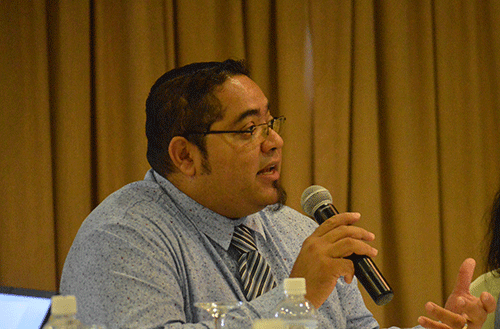Moses Magadza
MAHE – The recently concluded SADC-PF Sexual Reproductive Health Rights HIV and AIDS Governance Project in Seychelles has been hailed as a significant step towards addressing the HIV/AIDS crisis in the island nation.
In an interview, Dr Ann Gabriel, the chief executive officer of the National AIDS Council (NAC) of Seychelles expressed satisfaction with the initiative, emphasizing its positive impact on the country’s response to reproductive health and rights issues.
Gabriel said the establishment of the Committee of Communicable Diseases, HIV/AIDS and SRHR in the National Assembly, thanks to the project, has played a crucial role in advancing Seychelles’ efforts to combat HIV and AIDS.
The CEO acknowledged the exceptional support given by the committee, which has facilitated effective responses to the epidemic.
“We have had very good support from the committee that was formed by the National Assembly as a consequence. It has advanced the response to HIV/AIDS in Seychelles especially in regards to reproductive health and rights,” she said.
However, she also expressed concern about individuals defaulting on their HIV treatment, highlighting the seriousness of the matter. In 2021 alone, approximately 200 individuals were lost to treatment, indicating a significant non-adherence rate.
After the matter was raised, concerted efforts were made and these resulted in successfully bringing back around 50% of the lost individuals onto treatment. Nevertheless, the number of people defaulting on treatment has increased once again, necessitating a greater focus on psychosocial support and community engagement.
Gabriel emphasized that those who discontinued treatment were not newcomers to antiretroviral therapy (ART) but rather individuals who had been on treatment for an extended period. The isolating effects of the Covid-19 pandemic contributed to their sense of desolation, prompting them to give up HIV treatment and, in some cases, give up on life in general.
She said strengthening community systems, advocating treatment adherence, and providing comprehensive support are vital in addressing these challenges.
Equally crucial is conveying to individuals living with HIV that they are not alone, that support is available, and that HIV is not a death sentence but a life-long condition that can be managed with treatment, she added.
Regarding future projects, the CEO stressed the need for increased interaction with communities, which had been hindered by the Covid-19 pandemic. Public hearings and community sessions were temporarily halted, impeding the dissemination of essential information about HIV, rights, and sexual and reproductive health.
Re-establishing these avenues of engagement would be a key strategy to foster greater awareness and understanding within the communities, she said.
In a separate interview, Alvin Laurence, CEO of the Citizens Engagement Platform of Seychelles (CEPS), acknowledged the government’s long-standing prioritization of HIV for the past two decades.
However, he highlighted the lack of coordination and monitoring among the various non-governmental organizations (NGOs) formed around HIV-related issues in the early days of the pandemic in Seychelles.
He said the changing political landscape in Seychelles, particularly within the National Assembly, has created opportunities for enhanced responses to HIV.
Laurence emphasised that Members of Parliament are now actively engaging with communities and collaborating with other stakeholders, including civil society organizations (CSOs).
This collaborative approach has fostered better consultation and increased the influence of NGOs and CSOs in parliamentary processes.
He noted that the project has been instrumental in bringing together diverse stakeholders, transcending political affiliations, and promoting national unity in addressing HIV/AIDS.
Reflecting on the past four years of project implementation, Laurence highlighted the achievements through improved interaction with MPs. However, he acknowledged that external factors, such as the Covid-19 pandemic and political changes in Seychelles, had affected the project’s implementation.
Nevertheless, the project has successfully promoted collaboration among NGOs, CSOs and MPs, facilitating constructive discussions and agreements for the benefit of the nation.
Looking to the future, Laurence emphasized the importance of continuity and building upon the achievements of the project. Documentation of accomplishments and challenges must be undertaken to ensure the sustainability of the project, especially in the event of personnel changes among collaborating institutions.
“Documentation of the accomplishments and challenges of the project must be done and shared for continuity in the event of people leaving the project, whether MPs or staff of partner organizations. Capacity building will need to be ongoing in keeping with changing trends,” he said.
The evaluation is part of the SADC-PF governance project with the overall objective of promoting access to SRHR in southern Africa within the universal health coverage context.
The project seeks to improve oversight, representative, legislative and the budgetary role of parliamentarians in the SADC region in general, and female parliamentarians in particular, in the field of SRHR and HIV/AIDS governance, with human rights and democracy also recently added to the targeted outcomes.


